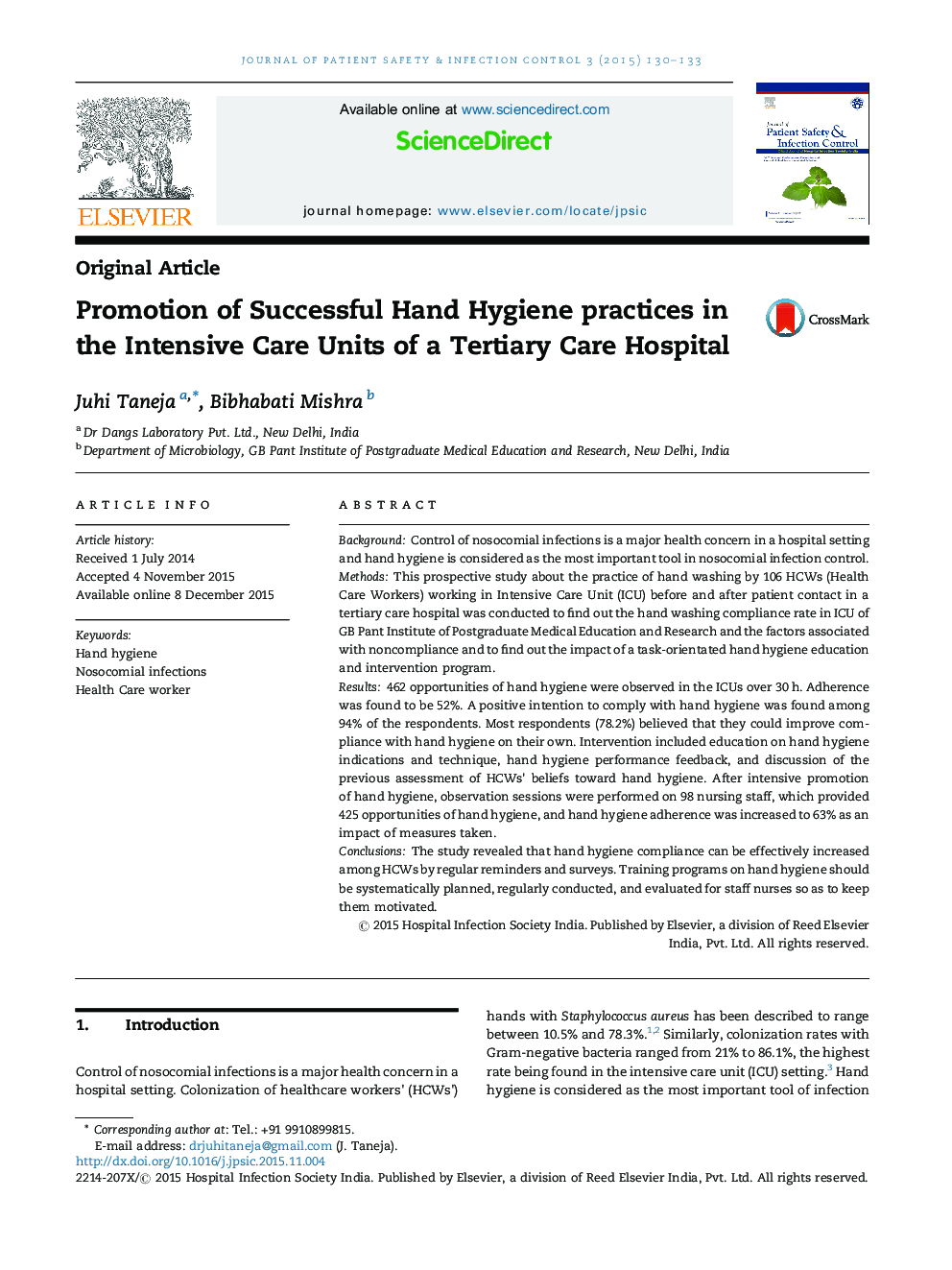| Article ID | Journal | Published Year | Pages | File Type |
|---|---|---|---|---|
| 3406412 | Journal of Patient Safety & Infection Control | 2015 | 4 Pages |
BackgroundControl of nosocomial infections is a major health concern in a hospital setting and hand hygiene is considered as the most important tool in nosocomial infection control.MethodsThis prospective study about the practice of hand washing by 106 HCWs (Health Care Workers) working in Intensive Care Unit (ICU) before and after patient contact in a tertiary care hospital was conducted to find out the hand washing compliance rate in ICU of GB Pant Institute of Postgraduate Medical Education and Research and the factors associated with noncompliance and to find out the impact of a task-orientated hand hygiene education and intervention program.Results462 opportunities of hand hygiene were observed in the ICUs over 30 h. Adherence was found to be 52%. A positive intention to comply with hand hygiene was found among 94% of the respondents. Most respondents (78.2%) believed that they could improve compliance with hand hygiene on their own. Intervention included education on hand hygiene indications and technique, hand hygiene performance feedback, and discussion of the previous assessment of HCWs’ beliefs toward hand hygiene. After intensive promotion of hand hygiene, observation sessions were performed on 98 nursing staff, which provided 425 opportunities of hand hygiene, and hand hygiene adherence was increased to 63% as an impact of measures taken.ConclusionsThe study revealed that hand hygiene compliance can be effectively increased among HCWs by regular reminders and surveys. Training programs on hand hygiene should be systematically planned, regularly conducted, and evaluated for staff nurses so as to keep them motivated.
